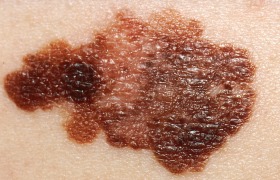Health insurance covers experimental melanoma treatment
In cooperation with researchers from the US, Israel and Europe, the Netherlands Cancer Institute (Antoni van Leeuwenhoek) has developed a new immune therapy for metastasised melanoma. During the next four years, the therapy will be available in research context and covered by health insurance.
For the tumour-infiltrating lymphocyte (TIL) treatment, T-lymphocytes are harvested from the metastasis, cultured and readministered to the patient. Although these cells are naturally present in tumour tissue, they are not potent enough to remove the metastasis. By flooding the melanoma with a large amount of T-lymphocytes, the TIL treatment strengthens the patient’s immune system.
“Worldwide, already more than four hundred patients have been treated with TIL. We know that approximately half of them experience improvement. Indeed, in a group of ten to twenty percent metastases disappear altogether. In those patients, the chance of total recovery is quite big”, explains professor John Haanen, PhD, oncologist at the Netherlands Cancer Institute.
However, TIL is no easy treatment. Patients have to undergo chemotherapy, destroying a large amount of immune cells to make room for the cultured T-lymphocytes. Additionally, they are treated with interleukin-2, a growth factor that extends the life of T-lymphocytes. “IL-2 often worsens the condition of patients. They can suffer from fever, fluid retention and shortness of breath. Because of these adverse effects, patients need to be in good condition for the treatment”, says Haanen.
Following Denmark and the UK, now The Netherlands has conditionally approved TIL for the health insurance package. Haanen explains: “In the course of four years we will investigate the efficacy of the treatment to assess whether it is equivalent to or better than the standard treatment offered today. In that case, TIL will have earned a lasting place in the standard health insurance package.”
Watch a video about TIL treatment here.
Source: Netherlands Cancer Institute (Antoni van Leeuwenhoek)
MedZine writes about notable science twice a week.







